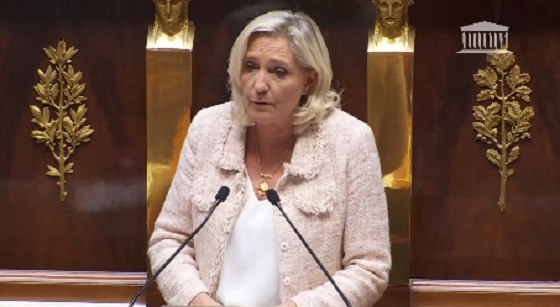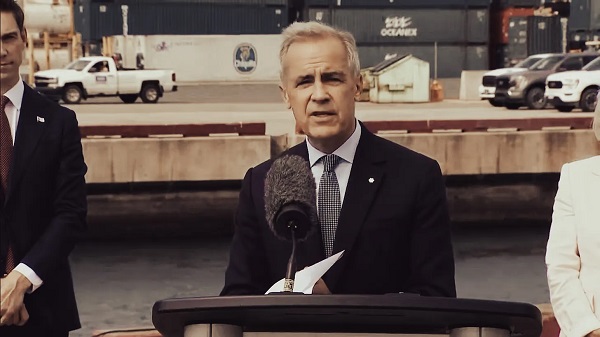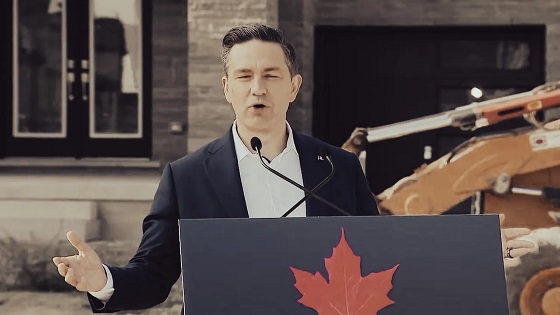Alberta
Premier Kenney escalates Alberta’s response to Amnesty International with a new scathing barrage

From the Province of Alberta
Amnesty International: Statement from Premier Kenney
Premier Jason Kenney has sent the following letter to Alex Neve, secretary general of Amnesty International Canada:
“Dear Mr. Neve,
“Before responding to your open letter, titled “Human rights concerns regarding the Government of Alberta’s “Fight Back Strategy,” I would like to offer a note of sympathy. Honestly, it can’t be easy being the long-time head of Amnesty International Canada (AI), stuck in annoyingly free and peaceful Canada, having to work yourself up into high dudgeon to denounce a democratically-elected government peacefully standing up for its citizens.
“On the other hand, your insistence that the burning human rights threat in Canada right now is – to use your description – the “establishment of an energy ‘war room’ devoted to defending the oil and gas industry in Alberta and a public inquiry into the foreign funding of groups who oppose or criticize energy developments in the province” can hardly pass unchallenged. Relentless misinformed attacks against our oil and gas industry have cost us thousands of jobs and hurt families from every region of our province. The cost in investment and jobs has been incalculable. Our government won the largest democratic mandate in Alberta history in part on a promise to stand up to those attacks. I will not apologize for keeping that promise.
“Again, I understand it must be hard for you. When you look around the world and see the rise of authoritarian governments, civil war, human trafficking, genocide, and other gross violations of human rights, it must be a tall order to find something, anything to denounce here in our gelid but placid Dominion.
“You see your colleagues in the Kingdom of Saudi Arabia standing up to a government that “severely restrict[s] the rights to freedom of expression, association and assembly” and “extrajudicially executed” and dismembered a prominent journalist (those are all quotes from the AI country profile).
“You see your counterparts in the Bolivarian Republic of Venezuela facing a regime under which “hundreds of people were arbitrarily detained” amid “reports of torture and other ill-treatment, including sexual violence against demonstrators” and “the Attorney General was dismissed under irregular circumstances.” (That last part rings a bell – you might want to look into it.)
“You see your confrères in Russia fighting “further restrictions to the rights to freedom of expression, association and peaceful assembly,” “harassment and persecution” of religious minorities, “torture,” and a regime that systematically sabotages Western democracy, while your greatest challenge is … a provincial government speaking out in defence of its economy and in defiance of an active campaign against it.
“This is a double pity. It can’t be much fun for you and, more seriously, it undermines the credibility of what was once, and still could be, an important organization. As I have written before, when I joined Amnesty International as a teenager it was to defend the rights of political dissidents like Andrei Sakharov and to oppose totalitarian regimes like those currently in charge in most major oil-producing countries. I am disappointed to see that you continue to squander the moral authority accrued in those brave campaigns on smearing the most responsible and rights respecting major oil-producer in the world.
“There was a reason I singled Russia, Saudi Arabia, and Venezuela for comparison. They – along with Iran – would be major beneficiaries of a moratorium on Canadian oil production. No one will cheer your letter harder than Vladimir Putin, the Houses of Saud and Al Thani, the caudillo Nicolás Maduro, and Ayatollah Ali Khamenei. OPEC’s oleo-gopolists will be chuckling from their gilded palaces at your naïveté.
“Demand for oil is not going away soon. Every credible estimate shows several more decades of strong oil demand, and the world is going to get it from somewhere. Shutting down Alberta’s oil industry means more global supply – including much of the oil imported to Canada’s east coast – will be sourced from the world’s worst human rights abusers, instead of from the most ethical and best-regulated industry in one of the freest countries in the world. The net result of the campaign to landlock Canada’s oil and gas reserves, in which (to use an old but apt term) you are playing the role of useful idiot, will be to take money out of the pockets of Alberta workers to line the silk pockets of men who commit enough human rights abuses before breakfast to keep Amnesty International busy for a year. If you are truly concerned about human rights, look at where the world’s oil will come from if we don’t export it from Canada.
“Although your letter is repetitive and scattershot in its criticisms, I will respond to your main points in turn. Not because you raise serious issues, but because your hyperbolic bill of particulars is all-too typical of critics of Alberta’s oil and gas industry. It demands a rejoinder in the interest not just of our province, but of accuracy. Ironically, your letter is a perfect illustration of just why Alberta needs a way to respond to common misconceptions – and the decade-long campaign to discredit the Canadian oil and gas industry – with facts.
“For example, you allege that our plan to correct inaccuracies about Alberta’s oil and gas industry will “have particularly serious implications for advancing reconciliation with Indigenous peoples in the province.” What out-of-touch balderdash. In fact, I received your letter while I was meeting with the leaders of northern Alberta First Nations, whose people have enjoyed prosperity precisely because of their partnerships with Alberta oilsands producers and who strongly support our government’s efforts to respond to the campaign to landlock Canadian energy.
“Shortly after I was sworn in as Premier, I hosted the first Government-First Nations gathering in years, which was attended by 46 of the 48 Alberta First Nations Chiefs. The overwhelming – I would say, unanimous – consensus was that Alberta’s First Nations want to be partners in the prosperity that flows from the responsible development of our shared natural resources. They have seen first-hand that Alberta has Canada’s highest level of Indigenous employment because of our energy sector, and especially our oilsands. And they have had enough of foreign and urban do-gooders telling them how they should steward their traditional lands – a phenomenon BC MLA and former chief councillor of the Haisla Nation, Ellis Ross, and others acidly refer to as “eco-colonialism.”
“That is why we proposed unprecedented steps to partner with First Nations in defense of our shared economic interests through the Alberta Indigenous Opportunities Corporation (AIOC). This $1 billion commitment, backed with the full faith and credit of the Alberta government, will encourage First Nations participation in resource development. The AIOC will be a first-of-its kind policy, a creative solution to the challenges that many resource-rich but capital-poor First Nations face in owning or co-owning major oil and gas projects. We have heard from dozens of First Nations inside and outside Alberta who are eager to access this support, and the federal government has expressed an interest in becoming a financing partner.
“We have also launched a $10 million Indigenous Litigation Fund to help First Nations defend their own economic development rights in court when they are threatened by government actions like the West Coast tanker ban or the cancellation of the Northern Gateway pipeline – both decisions taken by the federal government without consultation and over the strong objection of many B.C. and Alberta First Nations.
“You may be surprised to hear that I agree that “Reconciliation with Indigenous peoples is a Legal and Moral Imperative.” I use the same language myself, calling the need to partner with our First Nations, the first custodians of our rich trove of resources, a “moral imperative.” We know that there are still too many Indigenous people in Canada who do not enjoy the prosperity that natural resources development has brought. In that spirit, I hope that you will join me in cheering the fact that there are at least four consortia of First Nations bidding for a major stake in the Trans Mountain pipeline. Projects like this represent real economic opportunity for Canada and our First Nations and are a step towards meaningful reconciliation of which we should all be proud.
“Separately, I appreciate your concern for vulnerable individuals who you worry will be harmed by government advocacy. I am pleased be able to reassure you that you fundamentally misunderstand the context and purpose of the “fight back” strategy. In fact, I am sure you’ll be relieved to know that you have it exactly backwards: our energy industry and the jobs across Alberta and Canada that depend on it are not threatened by isolated or vulnerable individuals but by well-funded family foundations like the Rockefeller Brothers Fund, the David and Lucile Packard Foundation, and hedge fund billionaire Tom Steyer, whose fortune was made in part from coal mines.
“Those would be the Rockefellers whose fortune was made by the Standard Oil monopoly and the Packards of Hewlett-Packard fame, whose foundation has assets over US$7.5 billion and who recently rewarded Tzeporah Berman, a former advisor with the previous government, with a US$2 million prize for her anti-oilsands activism. When I joined Amnesty International, it was because you fought for prisoners of conscience in dictatorial regimes. Today, you are fighting on the side of foreign billionaires trying to shut down an industry on which hundreds of thousands of hard-working men and women depend. Forgive me if I express a concern of my own: that Amnesty International may have drifted somewhat from its core mission.
“As for your concerns about freedom of expression and association, those rights are not threatened by our government telling the truth about our energy industry. Our intent is to counter misinformation, exaggerations, and outdated information with facts and evidence. You acknowledge this when you say that the “narrative that has accompanied the launch of the ‘war room’ focuses on ‘uncovering the truth’ and ‘tackling misinformation.’” That’s exactly right.
“There is a great story to tell about Alberta’s oil and gas sector. It’s a story of innovation, of world-leading research and development, of decreasing emissions, of cleaner technology. Most importantly, it is the story of an industry that has been an engine of social progress for people of all education levels from across the country, including women, new Canadians, and Indigenous peoples. How you can twist this good news story into a threat to human rights confounds comprehension.
“Speaking of exaggerations, your claim that “by any measure, oilsands development in Alberta is a major source of global carbon emissions” is exactly the sort of distortion that makes this project necessary. Canada is responsible for 1.6% of global GHG emissions and the oilsands account for 8% of that, or about one tenth of one percent of global emissions. Your claim would be wildly inaccurate even if the oilsands were ten times their current size. This is not to diminish the importance of Alberta showing leadership in GHG reductions. Our government is committed to lowering emissions, including by putting a price on large emitters and funding technology that will lower emissions both here and around the world.
“The second part of that plan is particularly important. While we will reduce emissions here in Alberta, our greatest contribution to the global challenge of climate change will be come from developing and exporting new technology and our cleaner natural resources, especially natural gas, to displace the coal-fired electricity in the world’s largest and dirtiest emitters. The reduction in global emissions we can achieve by exporting our know-how and resources to the developing world dwarf any reductions the anti-oilsands campaign could ever hope to achieve. Contrary to your letter, we may not be a big part of the problem, but we are determined to be a big part of the solution.
“As for the rest of your accusations and insinuations, they only make sense if you deny that there is a well-funded campaign against Alberta’s natural resource industry and a concomitant need to rebut it. This would be the campaign that you dismiss as “vague conspiracy theories about the hidden goals of US based foundations.” I assure that if their goals are hidden it is because they have worked hard to keep them that way. One of the original strategy documents of the Tar Sands Campaign, from 2008, actually stressed that “the [Tar Sands Campaign] Coordination Centre shall remain invisible to the outside” (their emphasis). Unfortunately, the Tar Sands campaign is real and anything but vague. Under the heading “Tar Sands Campaign Strategy 2.1,” that same document lays out step-by-step, in precise detail, the “tar sands termination agenda” to “embarrass Canada” and “delegitimize” the oilsands.
“As if that weren’t enough, the North American energy industry is also being targeted by a sophisticated social media and cyber campaign funded and coordinated by Putin’s Russian government. A 2018 report from the U.S. House Committee on Science, Space and Technology concluded that “Russia exploited American social media as part of its concerted effort … to influence domestic energy policy” and specifically “targeted pipelines, fossil fuels [and] climate change.” It’s a coalition of the bleeding-hearted and the bloody-minded.
“This is the threat Alberta has faced for more than a decade. It is an existential threat to our economy backed by American billionaires and coordinated through dozens of foreign and Canadian environmental organizations and advocacy groups. Their success can be measured in tens of billions of dollars in lost investment and thousands of lost jobs. That is why in the recent election we told Albertans that “We will fight back against the foreign funded special interests who are trying to landlock our energy.” Having received an historic popular majority, we intend to keep our word.
“Albertans deserve a government that will not roll over in the face of foreign-funded special interests. Our commitment to stand up for Alberta is the furthest thing from a threat to human rights; it is a pledge to meet myth with fact and misinformation with evidence. If Amnesty International Canada really cannot see the difference, then I am sorry – the organization I joined as a teenager had a clearer sense of purpose and a better moral compass.”
Alberta
Alberta Education negotiations update: Minister Horner

President of Treasury Board and Minister of Finance Nate Horner issued the following statement about the ongoing negotiations with TEBA and the ATA:
“After announcing its intention to strike last week, the ATA provided its members with a document titled ‘Talking Points’ for teachers to use when speaking to parents and students about the current bargaining situation.
“The document falsely claims that the Teachers’ Employer Bargaining Association (TEBA) does not have the mandate to ‘negotiate on important issues such as class complexity, class size, support for students.’
“There are also other statements in the document that are misleading and confusing for parents, teachers and most importantly our kids, who are explicitly targeted by these communications.
“To be clear, the only item outstanding between the ATA and TEBA for a new contract is the union’s additional salary demands.
“TEBA’s most recent offer to the ATA included a guarantee to hire 3,000 more teachers over the next three years at a cost of about three-quarters of a billion dollars. This is what the ATA asked for in its previous offer and government’s response met that request. The parties are no longer disputing negotiations on that point.
“The current offer provides a salary increase of at least 12 per cent over four years with more than 95 per cent of teachers receiving more through a market adjustment, and would result in the best deal for teachers in all of Western Canada.
“The information in the ATA document is inaccurate. It intentionally misinforms the public, parents and students. TEBA has been left with no choice but to launch a legal challenge. The Alberta Labour Relations Board received our complaint today, asking the ATA and its president Jason Schilling to immediately retract their false claims and to stop using Alberta’s students and families for leverage in a bargaining dispute.
“The ATA’s leadership and communications strategy targeting families and children with false and misleading claims raises serious ethical concerns. The government must now correct the false narrative the ATA has created.
“I look forward to a speedy resolution of this complaint with the Labour Relations Board. When we have our resolution, we will consider next steps.”
Alberta
Break the Fences, Keep the Frontier

Note: This post was written from notes prepared for a panel at the Canada Strong and Free Conference in Calgary on Sept 6. I am grateful for the invitation and the opportunity to explore solutions to recognized interprovincial barriers and push further beyond.
Haultain’s Substack is a reader-supported publication.
To receive new posts and support our work, please consider becoming a free or paid subscriber.
Try it out.
Alberta is the number one destination for Canadians seeking a better life. In the last 5 years, 1 of 3 Canadians moving out of their provinces seeking a better life have come to Alberta. People come to Alberta to escape stagnant wages, unaffordable housing, and the bureaucratic chokeholds of central Canada. They come for work, for opportunity, and for the chance to get ahead. Alberta doesn’t just have oil and gas; it has policies and an entrepreneurial culture that reward hard work. (Every province, except for PEI, has hydrocarbon resources, but most chose not to exploit them). That’s why the province often draws more people than it loses.
But Alberta cannot assume it will always stay ahead. Prosperity, like liberty, is not automatic, and it can vanish if Albertans get complacent. To remain the country’s economic frontier, Alberta must keep moving. That means tearing down the barriers to trade and commerce we still have and fighting the new ones Ottawa and other provinces are busy inventing.
The costs of standing still are enormous. Economists estimate internal trade barriers drain Canada of up to $130 billion a year, as much as seven percent of GDP, a fraction of what the Trump tariffs would inflict. For Alberta alone, even a ten percent reduction in interprovincial barriers would be worth $7.3 billion annually. And when Quebec blocked the Energy East pipeline, Alberta lost the chance to ship crude worth as much as $15 billion a year — roughly one-fifth of its economy. That isn’t theory; that is lost paycheques, foregone tax revenue, and hospitals and schools that never got funded.
Alberta has worked to make itself freer than most provinces. Liquor was privatized decades ago—Ditto for property registries. The New West Partnership has opened labour mobility and procurement between Alberta, Saskatchewan, Manitoba and B.C. Alberta imposes no cultural or linguistic tests on newcomers. No PST. These are the reasons people come here — because it’s easier to find work, to start a business, to access pristine natural environments, to raise your children, and to get on with your life. Less bureaucracy and fewer people telling you what to do and how to live.
But there are still cracks in the foundation. Alberta’s liquor market is open on the retail side, but still congested at the warehouse level due to the AGLC monopoly. Professional guilds in law, teaching, and health care slow down credential recognition. Public procurement often tilts local in ways that make no sense. And like every province, Alberta still bows to Ottawa’s telecommunications rules, the banking oligopoly, the dairy and poultry cartels (supply management), even though it benefits Quebec farmers and hurts Alberta’s. These barriers cost real money and serve no useful purpose.
If those are the old barriers, new ones are emerging. The most notorious new barrier isn’t new at all. This is the recently resurrected protectionist reflex in the RoC. For a century and a half, Canadians have built a culture that is contrary to the dream of their founding fathers to have open trade within the country. Canadians like to mock Donald Trump’s tariffs, but their instincts are no different. When Trump tariffed Canadian steel, Ottawa’s immediate answer was “We’ll buy Canadian” as retaliation. The elbows-up, “buy local” campaigns are no different from the commercial nationalism Trump is using. And the “buy local” impetus precedes Trump. They prop up the cartels and marketing boards, the oligopolistic giants in telecoms, banking, groceries, and construction. Such reflexes are not based on free market ideas.
What makes this 21st-century mercantilism sting even more is the lack of any real appetite in Ottawa to defend free trade. When Mark Carney announced he would “help” canola farmers, it was a double insult. First, it signalled that in the Prime Minister’s Office, there is no courage to fight for open markets abroad — subsidies at home are easier than complicated negotiations. Second, those subsidies are no gift: they are paid for by the very farmers they are supposed to help, through taxes collected in Saskatchewan and Alberta, among others, laundered through Ottawa’s bureaucracy, and handed back with a smile. This is Canada’s oligopoly culture in miniature: no defence of free markets, more subsidies to placate, and more Ottawa bureaucrats to process the paperwork. All of these come at a price. Ottawa money is never free money.
And the irony deepens. Carney himself promised that interprovincial barriers would be gone by July 1, 2025. He did not deliver. And his latest announcement of a new “process” to expedite infrastructure risks does precisely the opposite — adding new layers of federal meddling, vetoes and Ottawa bureaucrats into what should be provincial decisions.
Haultain Research is a reader-supported publication.
If you enjoy our work and would like to support us and see more of it, please share our posts
and consider becoming a paid subscriber.
The enforcement of Diversity, Equity, and Inclusion (DEI) initiatives, along with the surrounding culture, is a recent development. What began as workplace training has evolved into a mechanism for bureaucrats and gatekeepers to extend their authority. In some regions, such as Ontario, DEI mandates have been codified into law, forcing individuals to think and act in ways that are not of their own choosing.
This kind of identitarian enforcement saps productivity, creates “bullsh*t jobs” focused on compliance, and categorizes people instead of promoting unity among them. Most concerning is the way it restricts mobility for workers who don’t fit ideological criteria, punishing those who refuse to conform. This system creates opportunities only for a select, tiny class of individuals.
Alberta has a distinct advantage in this context, as it has not fully embraced the DEI agenda—apart from federal agencies and affiliated organizations, sadly including our own ATB. However, it must remain vigilant against the encroaching imposition of these practices.
The third significant challenge we face on the horizon is “debanking.” In 2022, we witnessed how swiftly Ottawa could order banks to freeze accounts, and how readily banks complied. Since then, federal regulators have been extending their influence under the guise of anti-money laundering regulations. The reality is straightforward: industries or individuals that federal governments deem undesirable can be cut off from financial services. For Alberta, with its energy sector labelled as a threat to the planet, this poses a considerable risk. Entire industries—or even individuals who consume “too much” energy—could soon find themselves excluded from the marketplace by radicals in the PMO.
David Suzuki once called for criminally charging folks he considered environmental offenders, and the NDP has expressed a preference for criminalizing support for the oil and gas sector (The NDP, ostensible fond of books in schools and free speech, also wants to criminalize asking questions about non-existent mass graves and the fictional narrative of genocide in Canada). A free economy loses its meaning if citizens can be excluded from it through government decrees. Alberta must protect its residents by establishing ATB as a fortress for banking, addressing any divisive tendencies, and enshrining access to banking as a civil right. Alberta needs to protect its citizens when those federally chartered banks act as enforcers for Ottawa.
So what does moving forward look like? Alberta has a strong culture of enterprise, but it cannot rest on its laurels. Unless it works to keep ahead, others will eventually catch up. Alberta must double down on being the most desirable place in Canada to live and work. That means bold and greater transformational reforms.
Breaking the cartel-like influence of professional regulators—such as teachers, lawyers, doctors, and nurses—who have transformed their organizations into barriers is crucial. These groups often prosecute their members to enforce ideological beliefs that most Albertans do not support.
Additionally, we need to ensure that access to banking is protected in provincial law, regulating credit unions so that no Albertan can be denied banking services for political reasons. We should also consider breaking up large municipalities to encourage smaller communities to compete for residents and businesses.
Ending the equalization payments and replacing them with a Goods and Services Tax (GST) transfer to Ottawa is necessary to ensure that Alberta’s wealth benefits Albertans directly. Healthcare delivery must be reformed so that patients receive timely services and genuine choices.
Furthermore, we should deregulate trucking and housing construction to make life more affordable for families. Finally, we must tackle public service unions that operate like political monopolies, using examples from small towns like Coaldale to demonstrate how reform can begin at the grassroots level.
Canada advocates for free trade but often behaves like a medieval guild. Alberta has demonstrated that a more liberated approach is viable, but the province must continue to leverage its advantages. This involves resisting cartels, challenging the banks, dismantling outdated barriers, and preventing the emergence of new ones before they become too imposing.
Alberta has always been a frontier — a place where people come to build, take risks, and prosper. Frontiers are not maintained by standing still; they thrive by moving forward. If Alberta continues to push ahead, it can remain the engine of prosperity and the most desirable place to live and work. However, if it becomes complacent, it risks falling behind, becoming weaker, and Ottawa will be more than willing to take advantage of that.
The choice is simple: Alberta can either be fenced in by cartels and bureaucrats, or it can break the fences and keep the frontier open. That is the task, and it is one worthy of Alberta’s spirit.
For the full experience, and to help us bring you more quality research and commentary, please upgrade your subscription.
-

 Artificial Intelligence2 days ago
Artificial Intelligence2 days agoWhat are data centers and why do they matter?
-
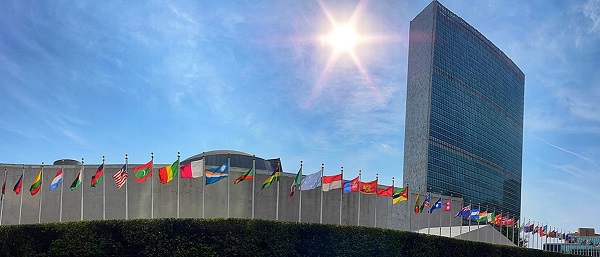
 Daily Caller2 days ago
Daily Caller2 days agoTrump Admin To Push UN Overhaul Of ‘Haphazard And Chaotic’ Refugee Policy
-
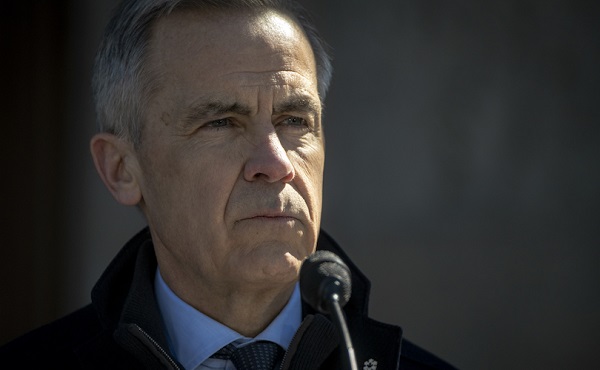
 Business1 day ago
Business1 day agoCarney’s Ethics Test: Opposition MP’s To Challenge Prime Minister’s Financial Ties to China
-

 Business2 days ago
Business2 days agoIt’s time to finally free the beer
-

 Business2 days ago
Business2 days agoCarney Admits Deficit Will Top $61.9 Billion, Unveils New Housing Bureaucracy
-

 Business1 day ago
Business1 day agoCarney government’s housing GST rebate doesn’t go far enough
-

 Business1 day ago
Business1 day agoAttrition doesn’t go far enough, taxpayers need real cuts
-

 Media1 day ago
Media1 day agoCancel culture wins ultimate victory as murder of Charlie Kirk ghoulishly celebrated by radical Left, media included





